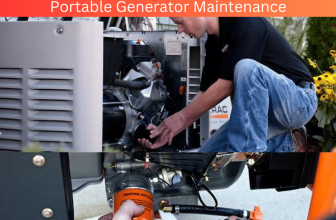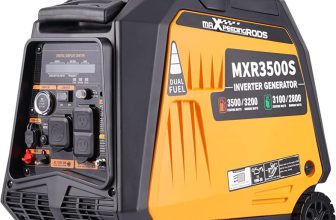Portable generators offer reliable power when you need it most, but how long can you expect your generator to last? This essential piece of equipment comes in many types and sizes, each with its own expected lifespan.
The key to extending that life is proper maintenance and care, no matter which kind of generator you possess. In this blog post, we’ll unravel the typical lifespans associated with various portable generators, explore factors affecting their longevity, and share powerful tips on preserving them for as long as possible.
Key Takeaways
- Portable generators have an average lifespan of 20 years or 3000 hours of service, but regular maintenance and usage patterns can significantly extend this time.
- Factors affecting the lifespan of a generator include quality construction, proper maintenance habits, operating conditions such as temperature and humidity, and incorporating innovative technologies like inverter generators, battery backup systems, and solar panels.
- Types of portable generators include inverter generators, standard portable generators, standby generators, solar generators, and wind turbine generators – each with their own unique advantages depending on your needs.
- Key maintenance tips for extending the lifespan of your portable generator include regular oil changes to lubricate internal components preventing wear and tear over time; proper storage and usage practices to prevent damages from dust or moisture build-up; regularly cleaning and inspecting your generator’s internal components.
Understanding The Lifespan Of A Portable Generator
Portable generators have an average lifespan of 20 years or 3000 hours of service, but various factors such as maintenance and usage can affect the actual duration.
Average Lifespan Of 20 Years Or 3000 Hours Of Service
As a portable generator owner, understanding the lifespan of your trusty power companion is essential for planning and maintenance. On average, you can expect your portable generator to last approximately 20 years or provide about 3,000 hours of service if regularly maintained.
Of course, this estimate isn’t set in stone as each generator’s actual lifespan will depend on several factors such as usage patterns and maintenance habits.
Factors That Can Affect Lifespan
The lifespan of your portable generator can be influenced by several factors, and understanding these elements can help you make informed decisions to prolong its life. One crucial factor that affects the longevity of a generator is maintenance.
Another aspect to consider is the quality of construction and materials used in making your generator. High-quality craftsmanship and parts ensure optimal performance for longer periods.
Using high-quality oil and fuel in your gasoline or diesel engine will also contribute to extending its lifespan.
Operating conditions like extreme temperatures, humidity, or harsh environments play a role too – proper ventilation during usage helps maintain essential components like bearings, ensuring they don’t wear out prematurely.
By being mindful of these factors – from maintenance practices to operating environment – you’ll not only extend the lifespan but also significantly enhance overall performance levels over time!
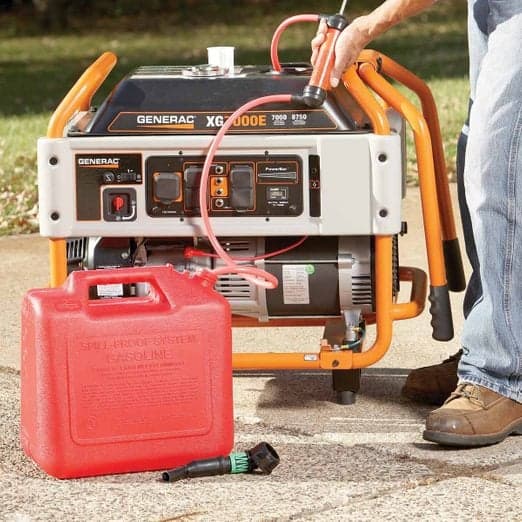
Image Credit: familyhandyman
Technologies That Can Extend The Lifespan
In today’s world, innovations in technology have provided us with solutions to extend the lifespan of our portable generators. One such example is the Inverter generator technology which offers a more efficient and cleaner power output than traditional portable generators.
Another breakthrough in prolonging the life of your generator is by incorporating battery backup systems to support it during high-load conditions or when grid power is unavailable.
This helps reduce strain on the mechanical components while providing consistent power supply under different circumstances. Furthermore, adopting preventive maintenance measures like monitoring fuel quality, coolant levels, air filters, spark plugs and using pressurized lubrication can help achieve better efficiency while minimizing wear and tear on the equipment’s vital parts.
preventive maintenance measures
Image Credit: genpartsupply
Types Of Portable Generators
There are various types of portable generators, including inverter generators, standard portable generators, standby generators, solar generators, and wind turbine generators.

Inverter Generators
As a proud portable generator owner, you may have heard about inverter generators. These types of generators are becoming increasingly popular due to several factors that make them stand out from traditional fuel-powered options.
For one, inverter generators tend to be more efficient and produce less noise compared to their standard counterparts. In fact, Consumer Reports’ expert tests found that they use less fuel and can run for longer periods with the same amount of gas! Additionally, inverter generators are typically lighter and easier to transport than other models, making them perfect for outdoor activities or emergency power situations.
Standard Portable Generators
Standard portable generators are the most common type of generator and are often used for camping trips, home backup power, and job sites. They typically run on gasoline or diesel fuel and can provide anywhere from 2,000 to 10,000 watts of power.
These generators use a manual start-up process with a pull-cord or electric starter. While they may not be as quiet as inverter generators, standard portable generators are more affordable and offer higher wattage outputs.
It’s important to follow manufacturer guidelines for proper usage and maintenance to ensure your generator runs efficiently and lasts its intended lifespan of 10-20 years or up to 3,000 hours of operation.
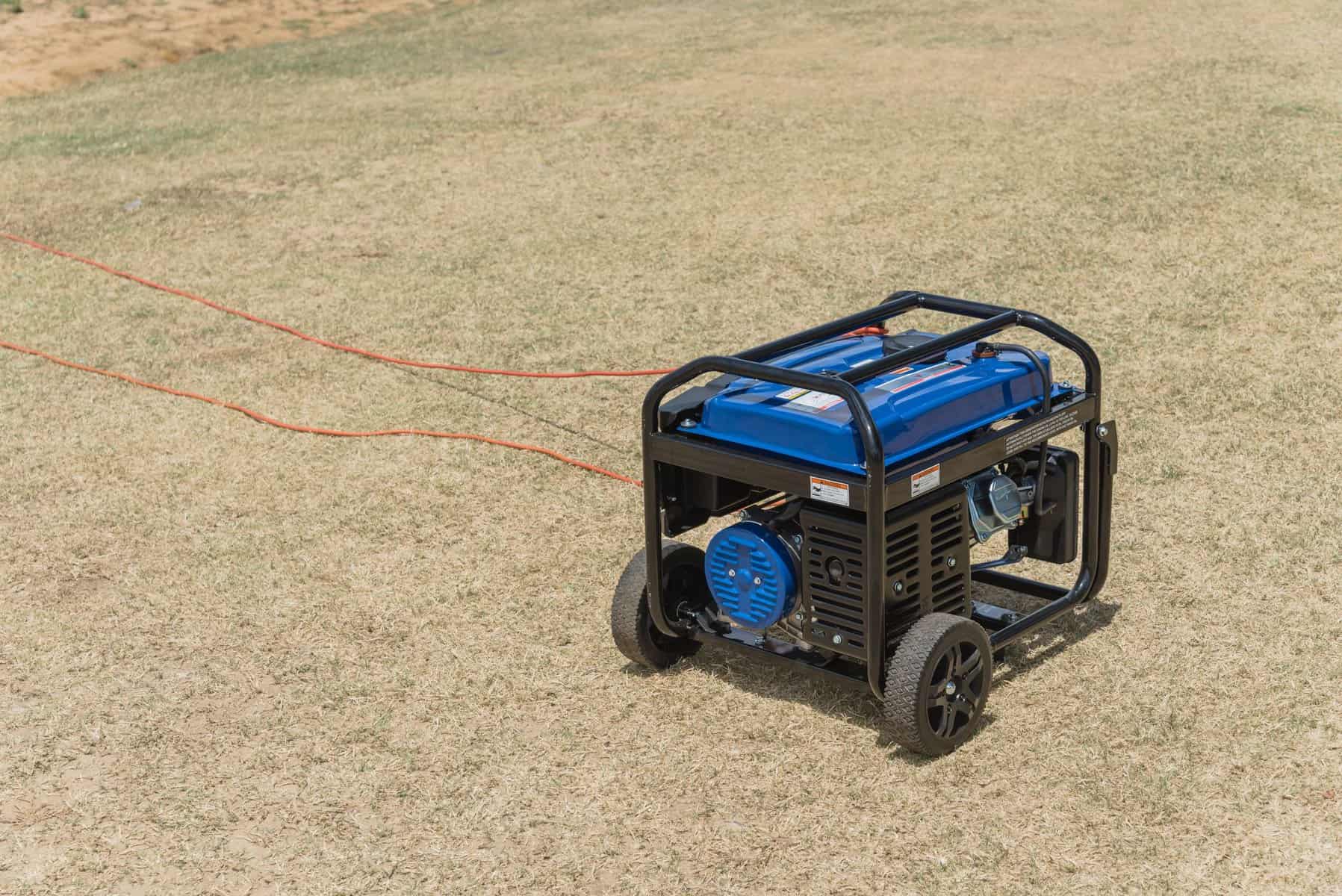
Image Credit: popularmechanics
Standby Generators
If you’re looking for a reliable backup power source, standby generators might be the perfect option for your needs. These types of generators are known for their convenience and worry-free operation compared to portable generators.
They run on either natural gas or liquid propane and can provide power to an entire house in the event of a blackout without requiring refueling. Standby generators are more expensive than portable ones, but they are worth it if you need continuous power supply during long-lasting outages.
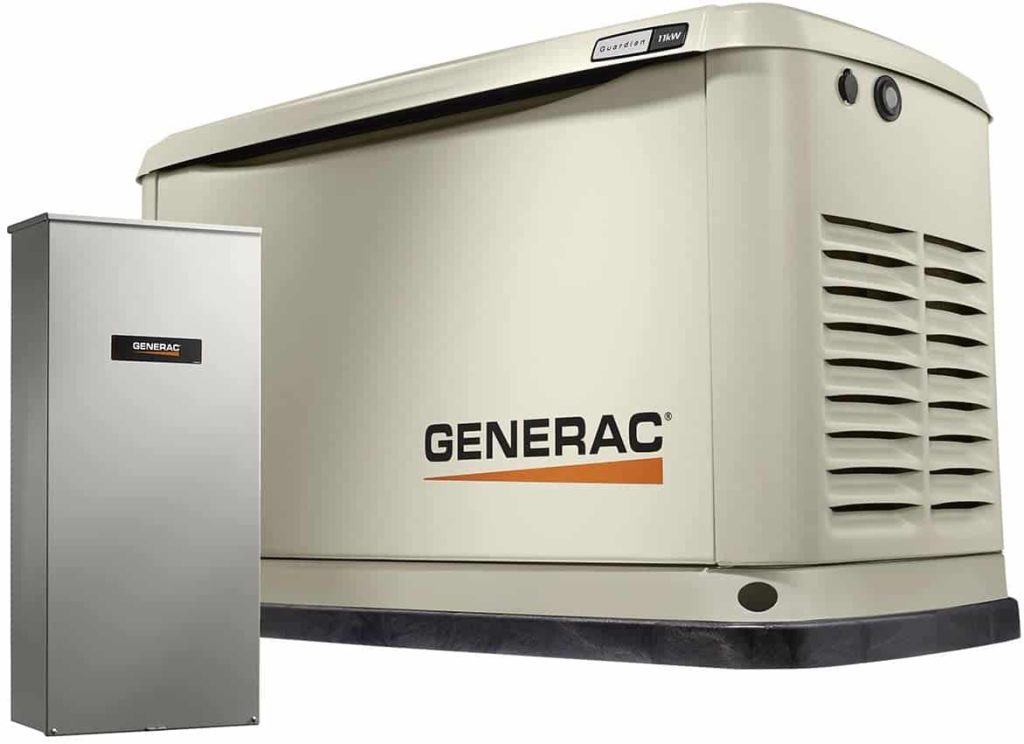
Solar Generators
Portable solar generators are becoming increasingly popular among generator owners due to their longer lifespan and use of renewable energy. As a combination of a power station and a solar panel, these generators store energy in batteries for later use.
Using solar energy instead of fossil fuels means that they are environmentally friendly as well as cost-effective in the long run. The average lifespan for these generators is approximately 25 to 35 years, depending on brand and quality, which is significantly longer than traditional gasoline or diesel-powered portable generators.

Wind Turbine Generators
As a portable generator owner, you may have wondered about wind turbine generators and their lifespan. Contrary to a false claim circulating on social media, wind turbines can last up to 20 years with proper maintenance every six months.
Not only can they be used for battery charging and AC utility intertie, but they can also directly drive water pumping systems or heating for your home.
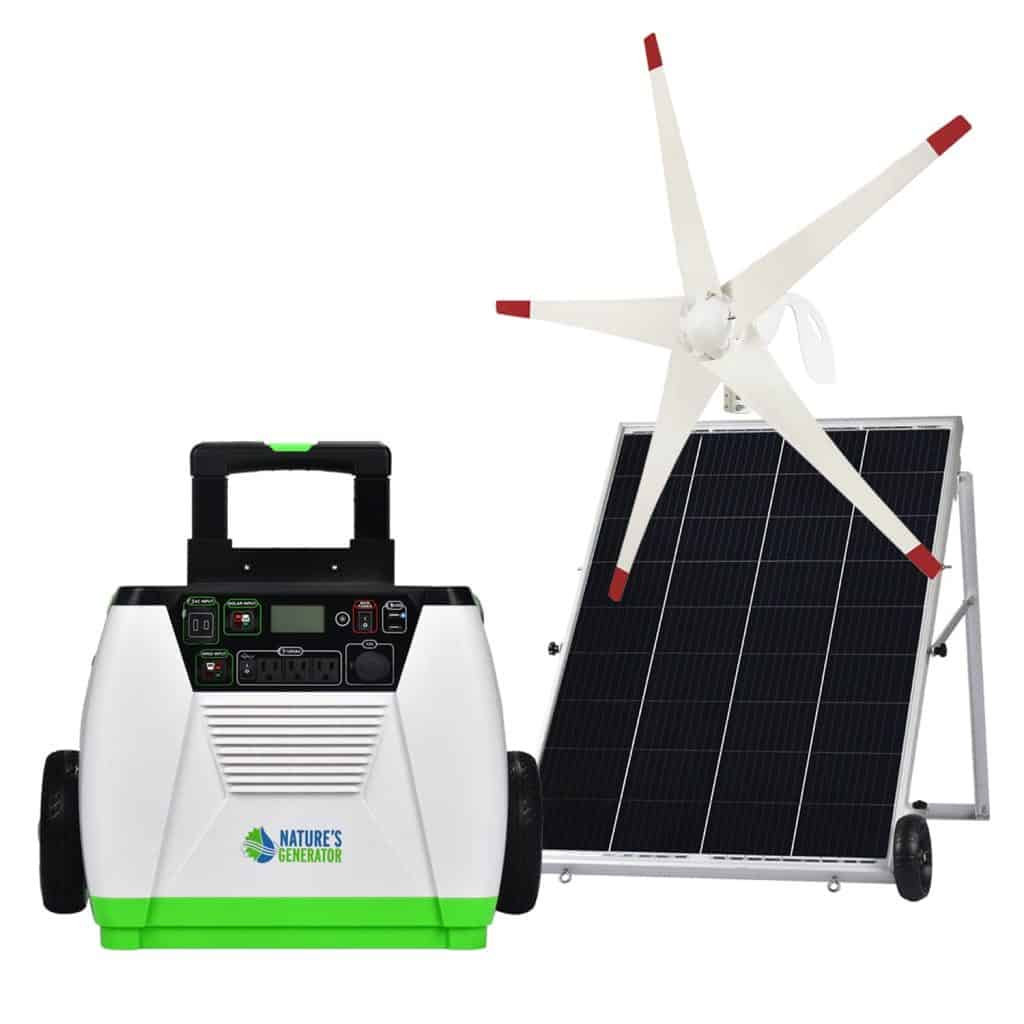
Maintenance Tips To Extend Lifespan
Regular maintenance is crucial to extend the lifespan of your portable generator, which includes changing oil and air filters, inspecting for dust and moisture damage, testing components regularly, replacing parts as required by service technicians with suitable replacements or new technology to reduce emissions and noise levels.
Regular Oil Changes
As a Portable Generator owner, one of the most important things you can do to extend the lifespan of your equipment is regular oil changes. Your generator’s oil lubricates its internal components and prevents wear and tear, ensuring that it operates smoothly for years to come.
Experts recommend changing the oil every 25 to 100 hours, depending on your generator’s make and model.
Regular maintenance checks like this are necessary preventative measures that help save owners time, money and potentially costly repairs down the road. Neglecting engine maintenance could lead parts failing at critical times such as during power outages when relying on portable generators is essential.
Therefore it is important always not only follow manufacturers’ guidelines but also ensure you have a trusted expert technician with knowledge in servicing generators check up on their equipment regularly.
Proper Storage And Usage
One of the most crucial aspects of maintaining a portable generator is proper storage and usage. When not in use, store your generator in a cool, dry place away from moisture and dust.
This will protect it from corrosion and damage caused by rust or condensation buildup.
When using your generator, make sure you set it up on a solid and level surface with ample ventilation around it to prevent overheating.
Always follow the manufacturer’s guidelines for starting and stopping the engine to avoid any safety risks or equipment balance issues.
Regular Cleaning And Inspection
As a portable generator owner, it is important to conduct regular cleaning and inspections to ensure that your equipment remains in top condition. Over time, dust and moisture can accumulate on the generator’s internal components, causing damage and reducing its lifespan.
To clean your generator, start by turning off the engine and letting it cool down completely. Then, wipe down the exterior surfaces with a damp cloth to remove any dirt or debris.
Make sure to also check the air filter after every 50 hours of use or every 3 months – whichever comes first – as excessive dust buildup can cause serious damage to internal components over time.
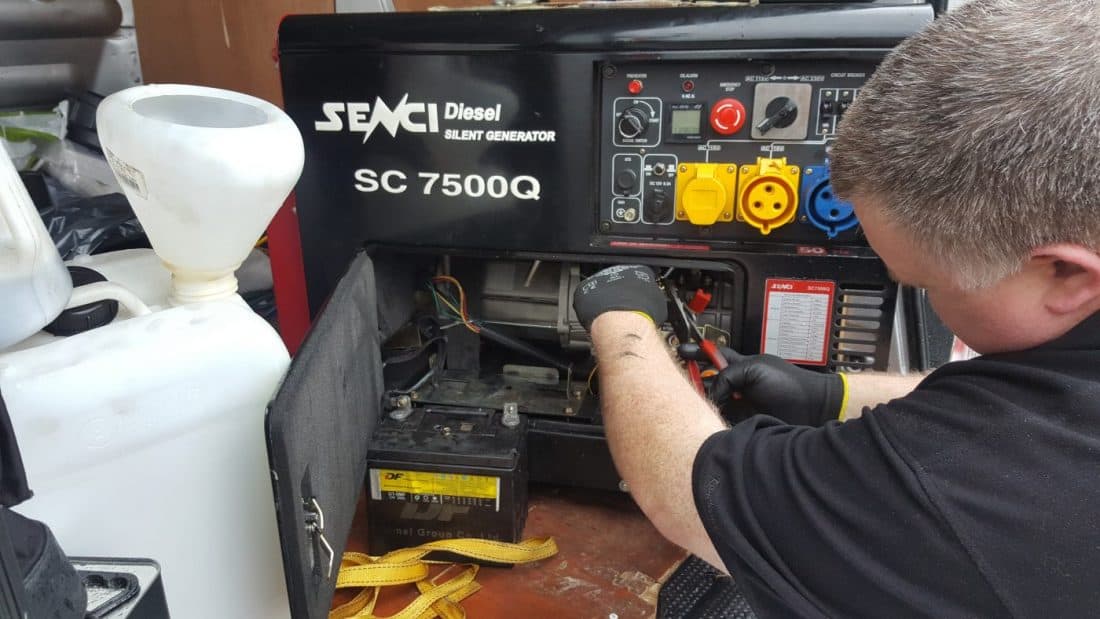
Image Credit: hampshiregenerators
Parts Replacement And Servicing
As with any mechanical piece of equipment, certain parts of your portable generator will eventually rust and fail. To extend the lifespan of your generator, regular servicing is important to replace these parts before they become a serious issue.
Service technicians may recommend replacing items such as oil filters and spark plugs regularly to ensure the smooth operation of your machine.
Regular service can prevent unexpected broken parts or costly repairs down the line, so it’s important not to skip out on this maintenance step. Following manufacturer guidelines for replacement schedules can also help keep everything running smoothly.

Image Credit: powerlite
High-quality Fuel And Oil
As a portable generator owner, it’s essential to understand the importance of using high-quality fuel and oil to extend the lifespan of your equipment. Lower-grade fuels can cause deposits to build up in your generator’s engine, which can affect its performance over time.
It’s recommended that you use premium unleaded gasoline or diesel fuel for optimal performance. Additionally, synthetic oils tend to provide better protection against wear and tear than conventional oils due to their higher viscosity index.
Regularly checking your oil levels and changing the oil at manufacturer-recommended intervals is vital for maintaining the longevity of your portable generator.
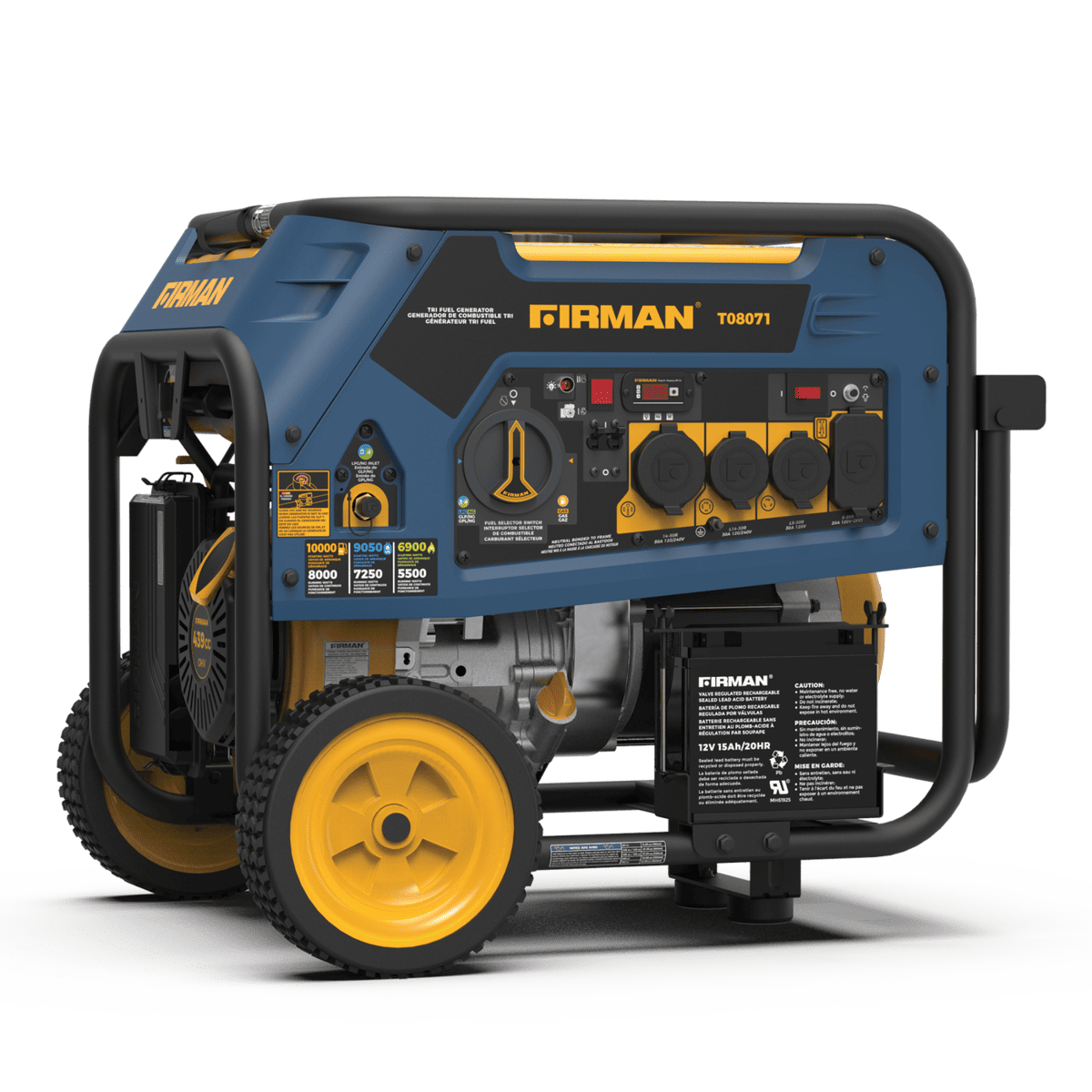
Image Credit: firmanpowerequipment
Monitoring And Testing Lifespan
To ensure that your portable generator is running efficiently and has a longer lifespan, it’s important to monitor the maximum continuous runtime and fuel consumption, regularly check the load capacity and wattage needs, keep track of maintenance and usage records, conduct regular inspections and testing, and follow manufacturer guidelines.
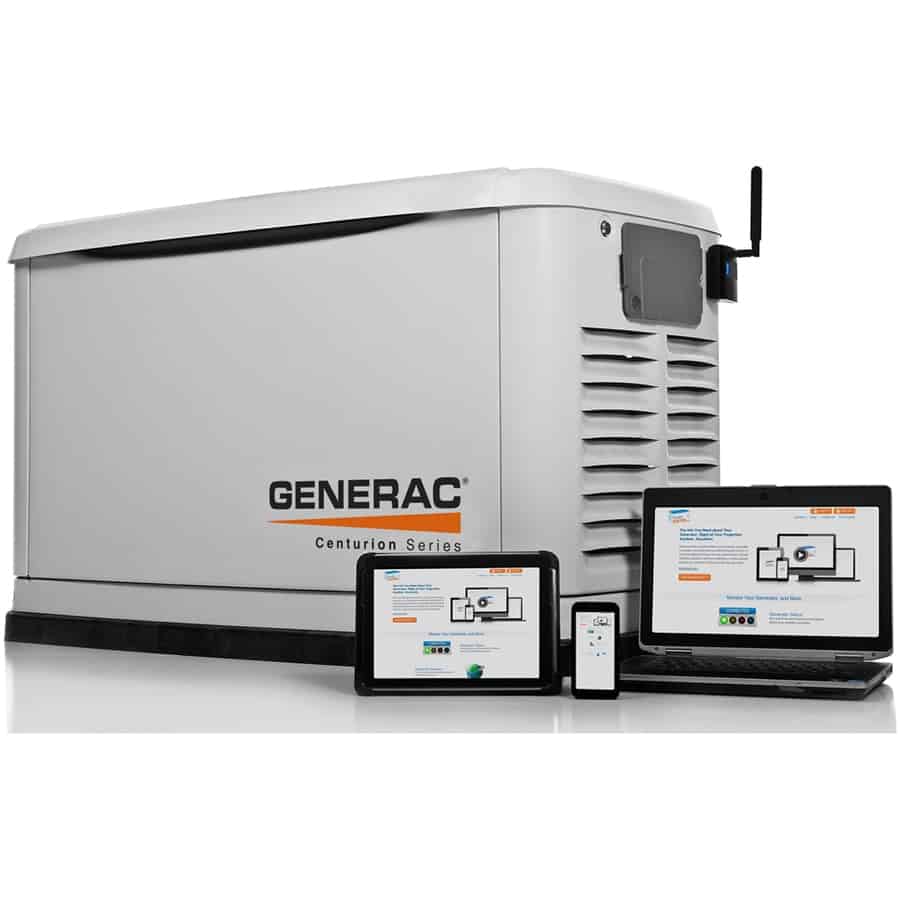
Image Credit: themobilegrid
Understanding Maximum Continuous Runtime And Fuel Consumption
As a portable generator owner, it’s essential to understand the maximum continuous runtime and fuel consumption of your machine. The maximum continuous runtime for a gas-powered generator on a full tank ranges between 8-12 hours, depending on factors such as wattage, load capacity, and fuel type.
To ensure optimal performance and longevity of your portable generator, you must monitor usage regularly while adhering to the manufacturer’s guidelines for maintenance and storage.
Knowing how much fuel your generator consumes during operation will help you adequately plan for power outages or other emergencies where backup energy is necessary.
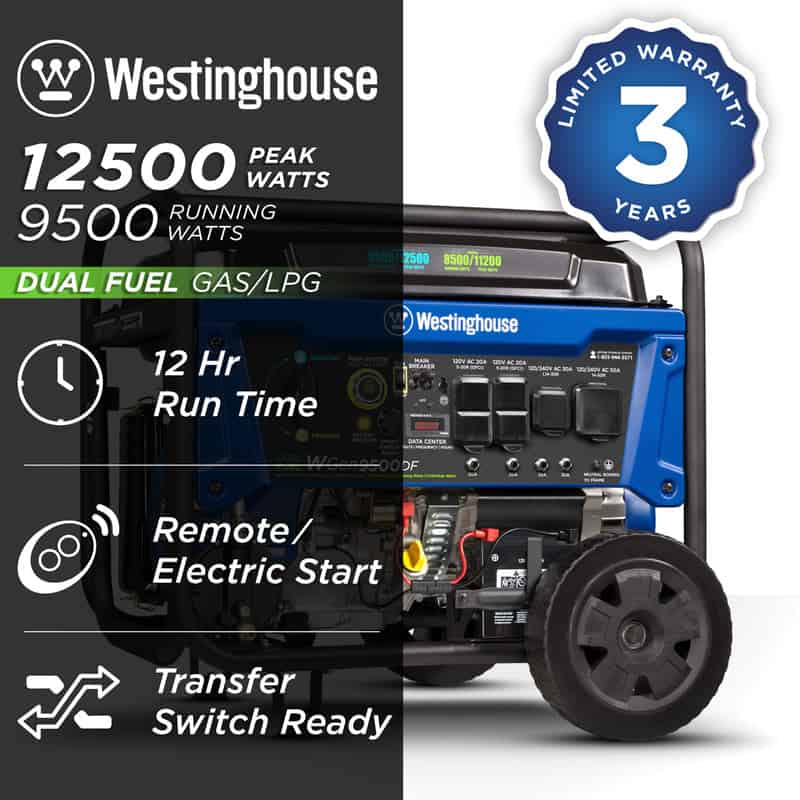
Image Credit: westinghouseoutdoorpower
Monitoring Usage And Maintenance
As a portable generator owner, monitoring usage and maintenance is critical to extend the lifespan of your equipment. Keeping track of how often you use your generator and performing regular maintenance tasks such as oil changes, filter replacements, and inspection will not only keep it running for longer but also help identify potential issues before they become costly repairs.
For instance, testing and running emergency generators once a month is recommended to ensure that they function correctly during power outages. By keeping an accurate record of your usage habits and maintenance schedule, you can optimize fuel needs, position the generator properly, schedule maintenance more efficiently and ensure that it continues to meet all environmental codes.

Image Credit: generatormart
Load Capacity And Wattage Needs
As a portable generator owner, understanding load capacity and wattage needs is essential to ensuring your generator operates efficiently and effectively.
It’s important to choose a generator with a wattage rating large enough to run all necessary items at 50% of its full capacity.
Additionally, running your portable generator at maximum capacity for extended periods can shorten its lifespan. It’s best to avoid overloading your generator by checking the output capacity regularly and adjusting usage accordingly.

Retirement And Replacement Options
When it’s time to retire your portable generator, look for warning signs such as frequent breakdowns, excessive smoke or noise, and difficulty starting; when selecting a replacement model, consider factors like energy needs and load capacity, and always follow manufacturer guidelines for installation and maintenance.
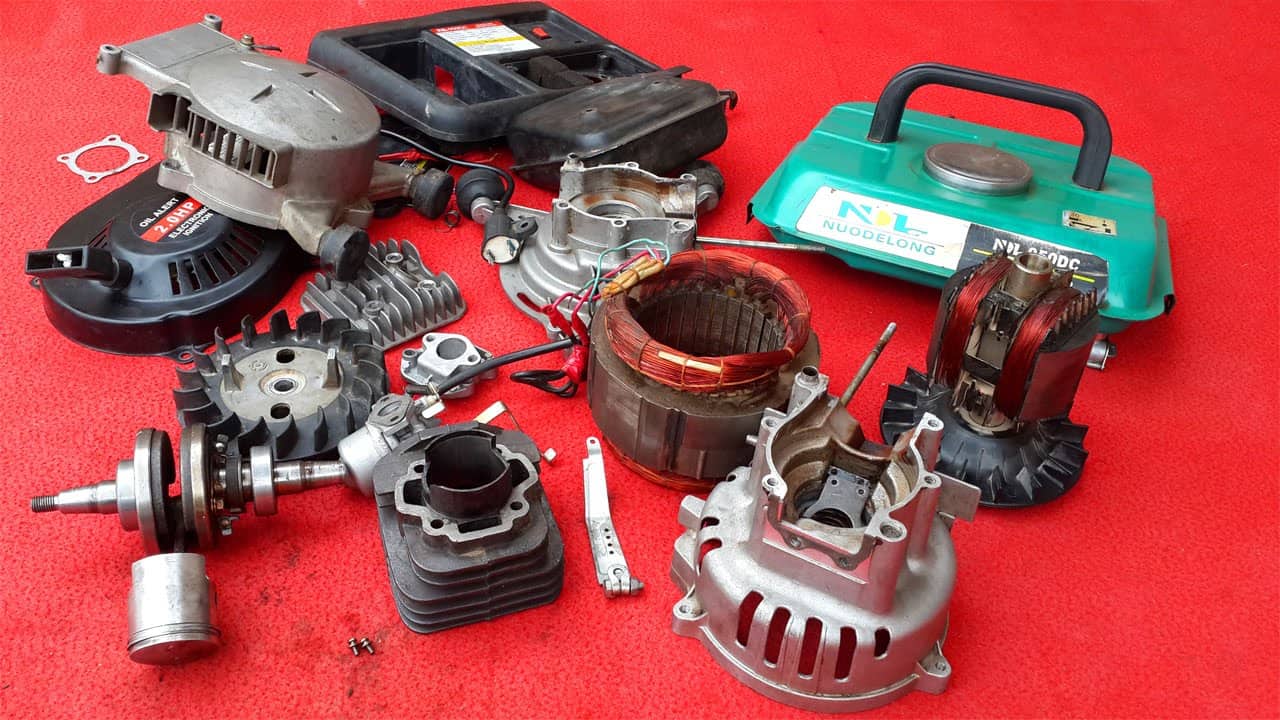
Image Credit: youtube
Signs That A Generator Needs To Be Retired
As a portable generator owner, it’s essential to know when your equipment needs to be retired. Several signs indicate that it’s time to replace your generator, including wear and tear on mechanical components, an increased frequency of repairs or maintenance needs, and excessive fuel consumption.
Another indicator that your generator may need to retire is if its emissions exceed environmental codes or produce high levels of noise pollution.
If these issues persist despite regular inspections and maintenance by a qualified technician, replacing the unit may be necessary.
Factors To Consider When Choosing A Replacement Model
Choosing a replacement model for your portable generator can be overwhelming, especially with so many options available. Some critical factors to consider include the power output and fuel consumption of the generator, as well as its noise level and environmental impact.
You’ll also need to think about your energy needs and budget when selecting a new model. Be sure to consult with a qualified technician or read the manufacturer’s guidelines carefully before making a purchase.
Remember that planning for end-of-life replacement of emergency generators requires several steps, including regularly testing and monitoring usage to determine when it is time for an upgrade.
Image Credit: natureworldnews
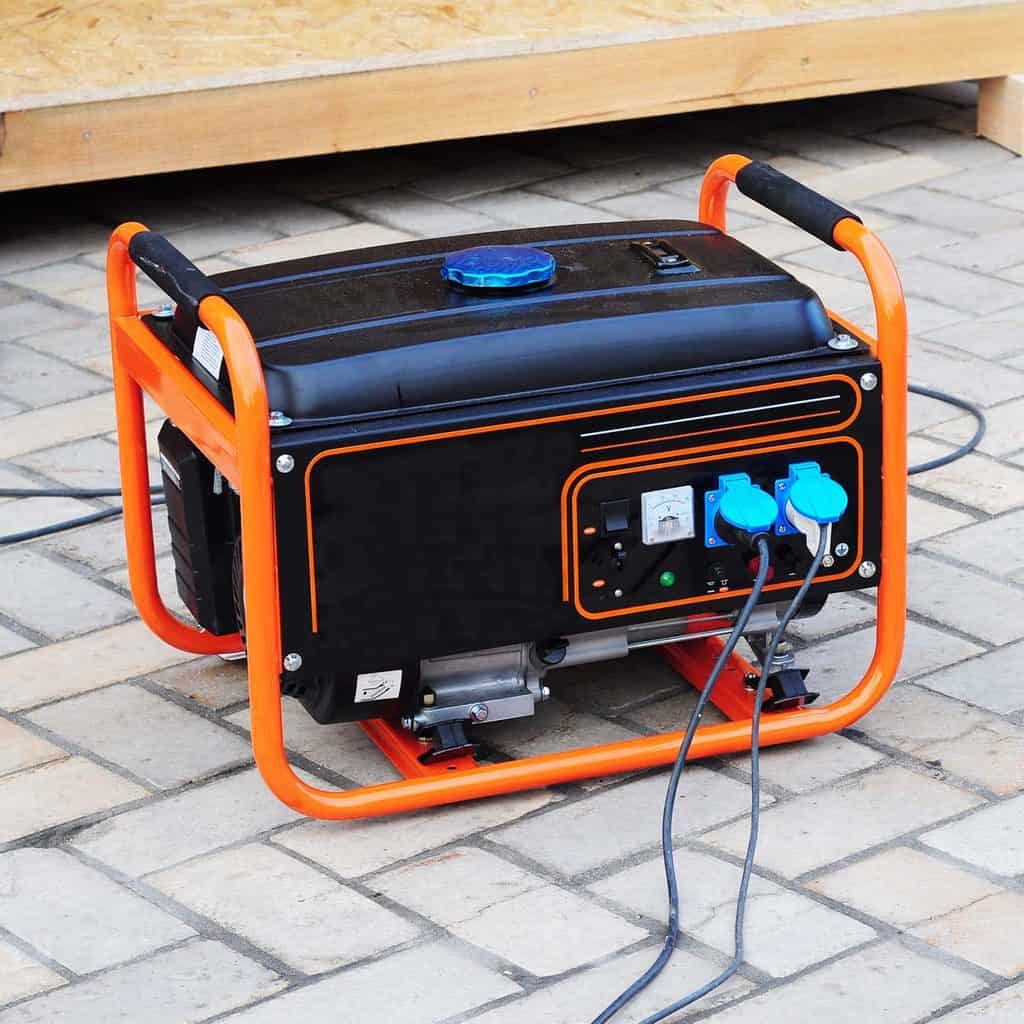
Image Credit: familyhandyman
The Importance Of Following Manufacturer Guidelines
It’s crucial to follow the manufacturer guidelines when it comes to maintaining and replacing your portable generator. These guidelines are put in place by the experts who designed and constructed the equipment, ensuring that you get optimal performance.
Ignoring these instructions can cause damage or even shorten the lifespan of your generator. For example, using low-quality fuel or oil can lead to clogs and corrosion inside the engine, reducing its efficiency over time.
Another factor to consider is load capacity – exceeding this limit may cause overheating and wear on mechanical components, leading to costly repairs down the line.
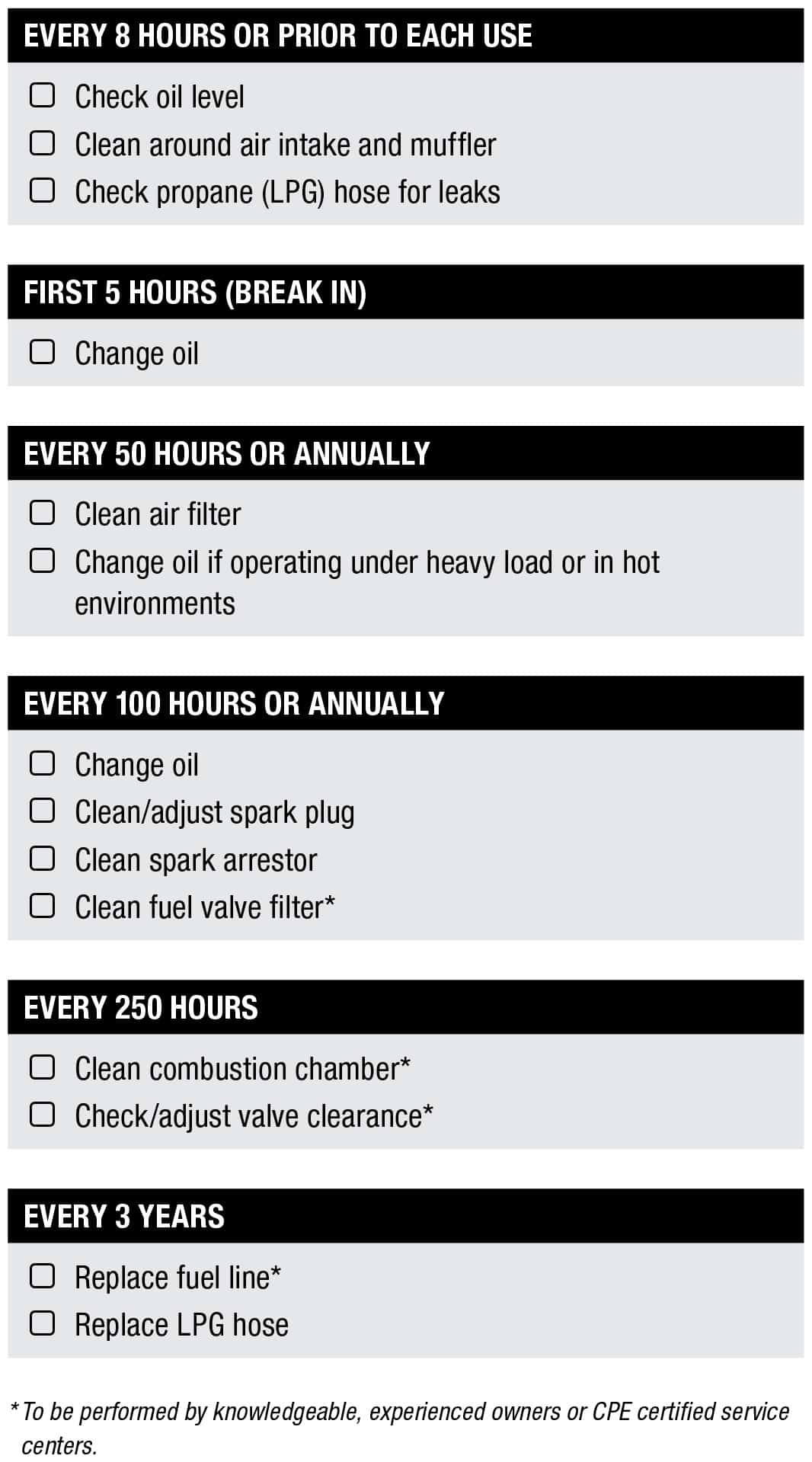
Ensuring Safe Disposal Or Recycling Of Old Equipment
As a responsible generator owner, it’s important to know how to properly dispose of your old equipment. First and foremost, you should never throw an old generator in the trash or dump it in a landfill.
Many municipalities have programs that allow for safe disposal and recycling of generators, often for a lower cost than other options. It’s also crucial to follow RCRA regulations when disposing of hazardous waste materials from generators.
Making sure you label your waste correctly and dispose of it according to your permit is essential. When decommissioning particle accelerators or any other electronic equipment, budget justifications for agencies like the U.S Fish and Wildlife Service come into play too.
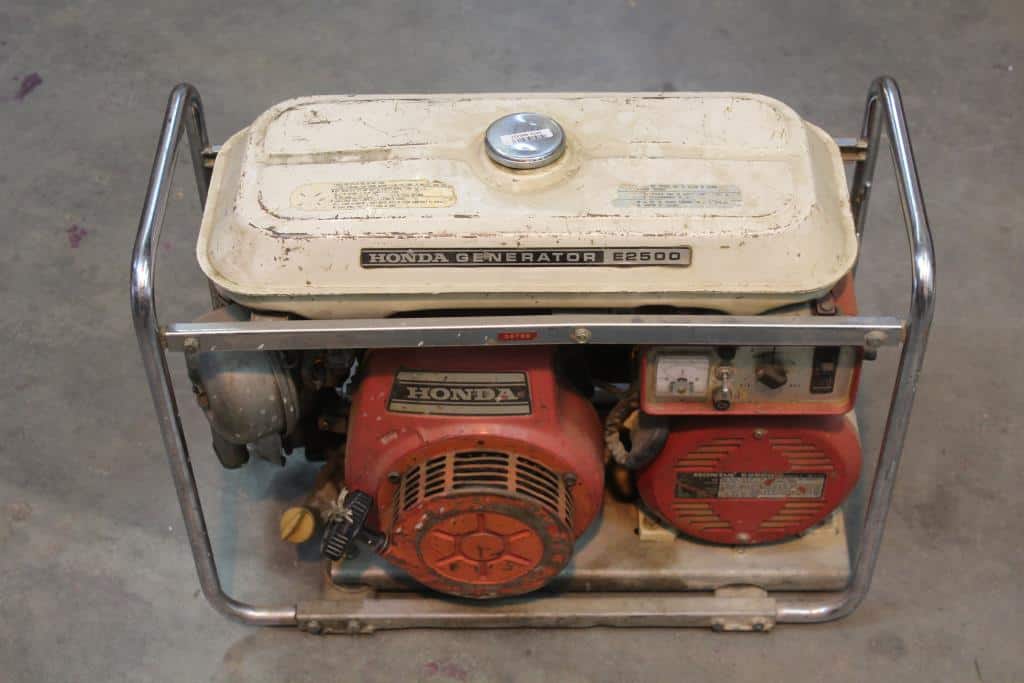
Image Credit: flowimp
Conclusion
In conclusion, understanding the lifespan of your portable generator is crucial in ensuring its optimal performance and avoiding costly damages. Regular maintenance practices such as oil changes, cleaning, and inspections can extend the lifespan of your generator.
By monitoring usage and load capacity, you can determine when it’s time to retire your old equipment and choose a replacement model that meets your needs.
Following manufacturer guidelines for installation, storage, and maintenance will ensure safe operation while reducing the risk of accidents or injuries.
How long can I expect my portable generator to last?
The lifespan of a portable generator depends on several factors, such as the frequency of use, maintenance practices, and the quality of the unit itself. With proper care and regular maintenance, a high-quality portable generator can last up to 20 years or more.
What are some tips for keeping my portable generator running smoothly?
To keep your portable generator running smoothly, you should regularly perform basic maintenance tasks like checking oil levels, replacing air filters when necessary and storing it properly when not in use. Additionally, performing annual check-ups with an experienced technician can help identify potential issues before they become major problems.
Can I upgrade my old portable generator?
If your existing unit is still functional but no longer suits your needs or is outdated then yes it’s possible to upgrade various components such as adding newer features like dual fuel capabilities or even upgrading power output at times depending upon make & model available from manufacturer.
Should I consider purchasing a new generator instead of repairing an older one?
If repairs prove costly or extensive enough that replacement makes economic sense though sometimes smaller fixes (like changing oil) might do trick rather than investing large amounts into overhaul which would likely out-price buying something new altogether – so definitely consult with experienced service team in making those decisions!



